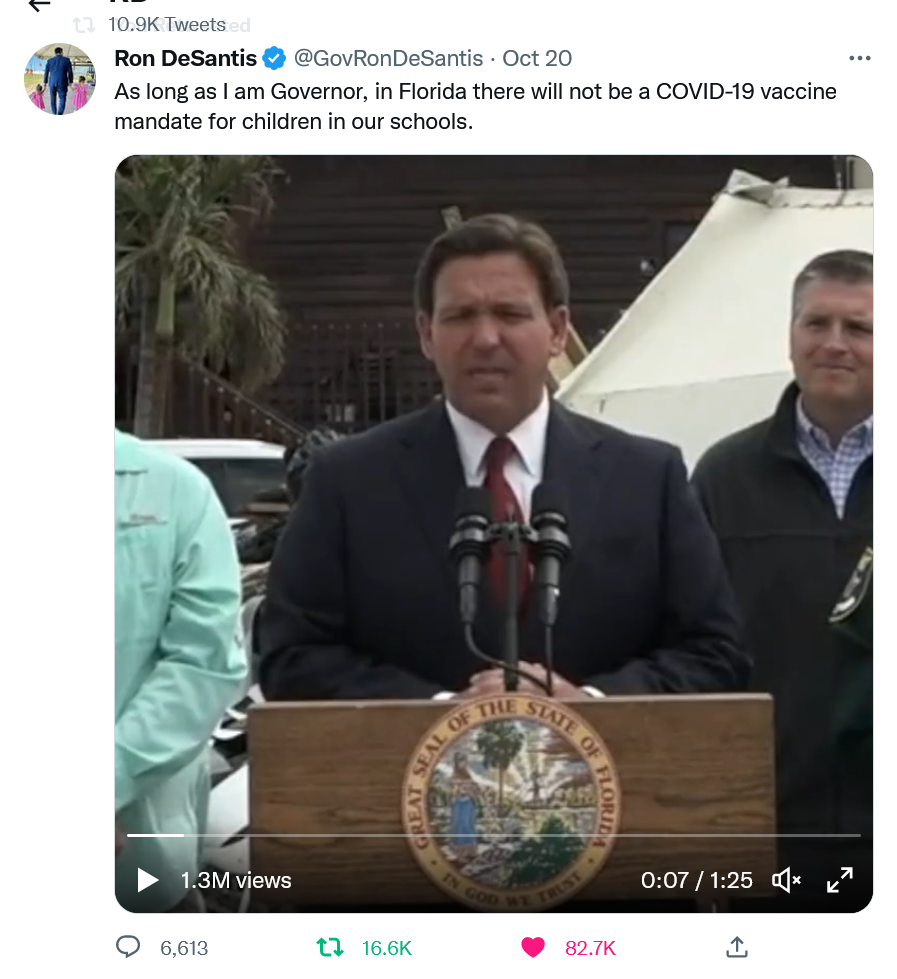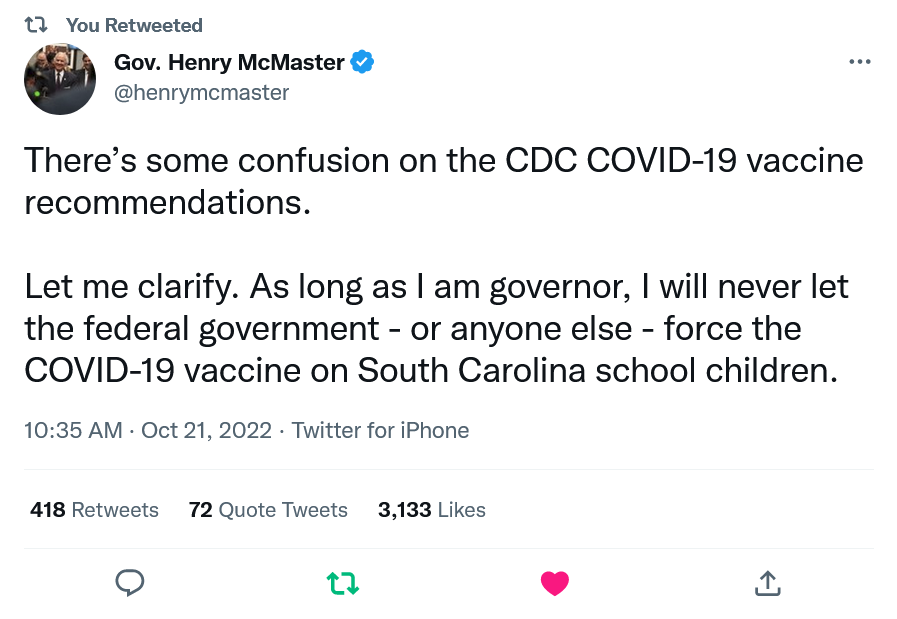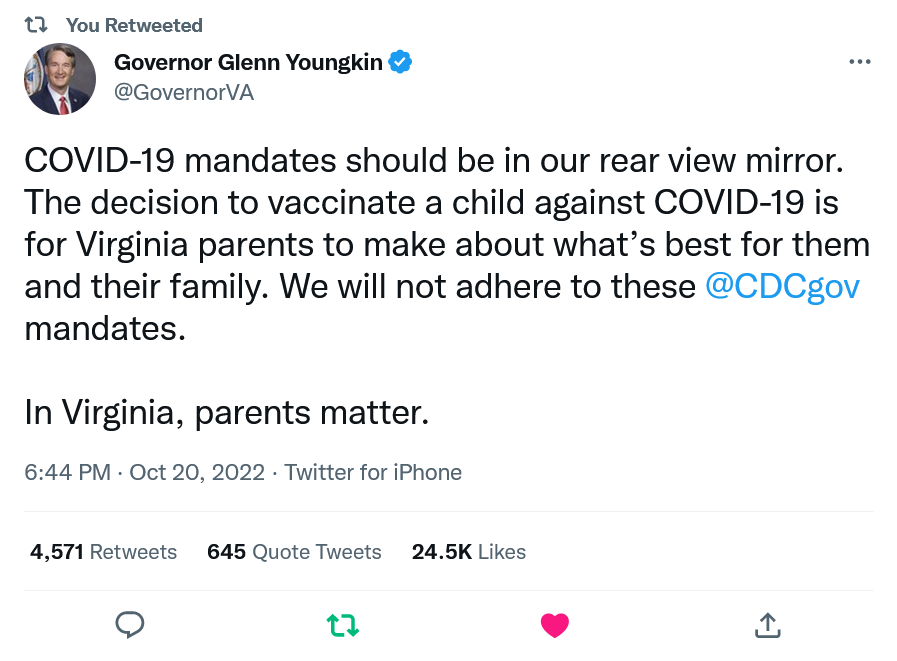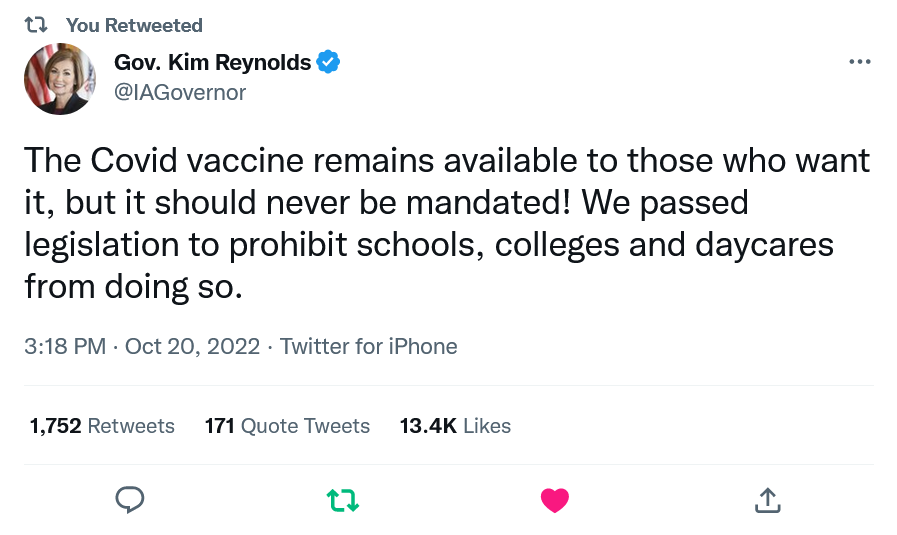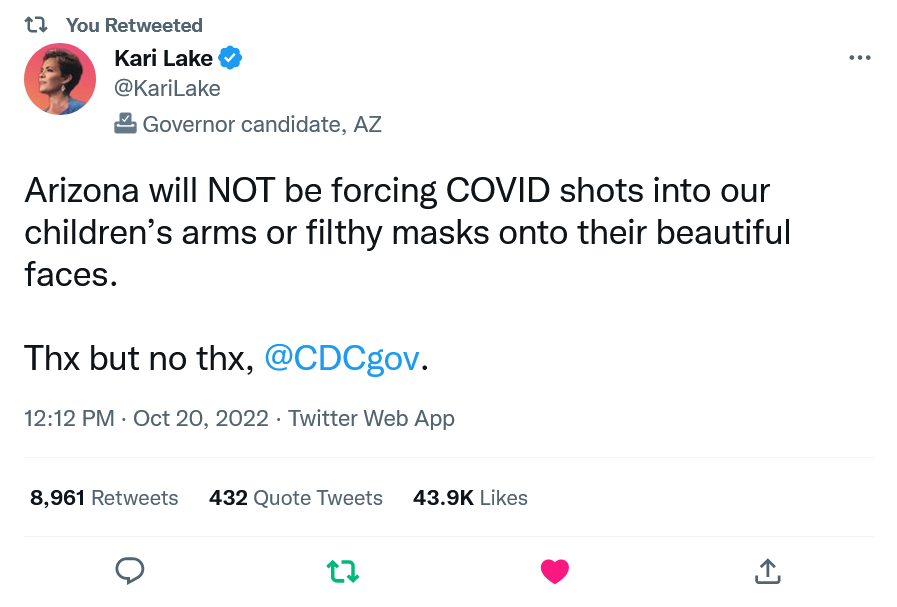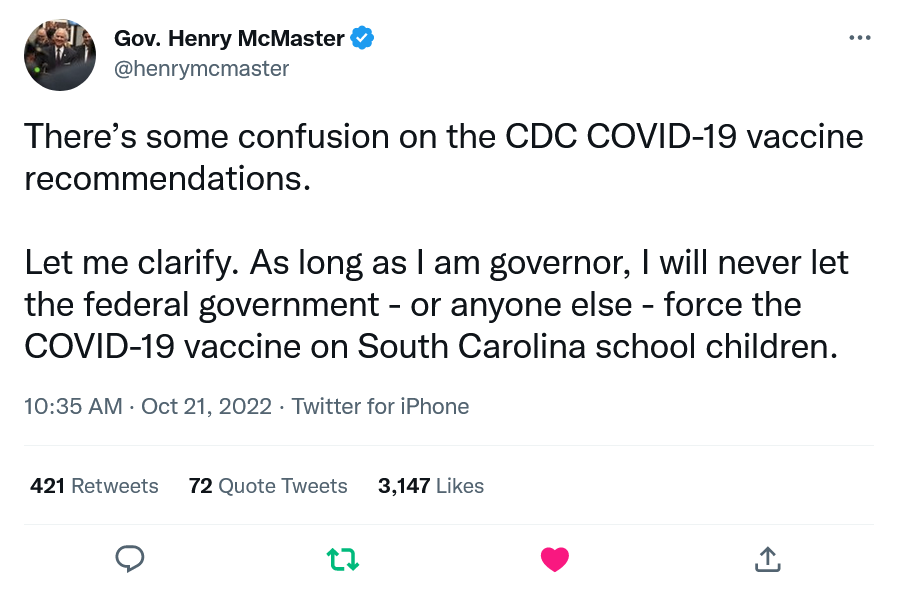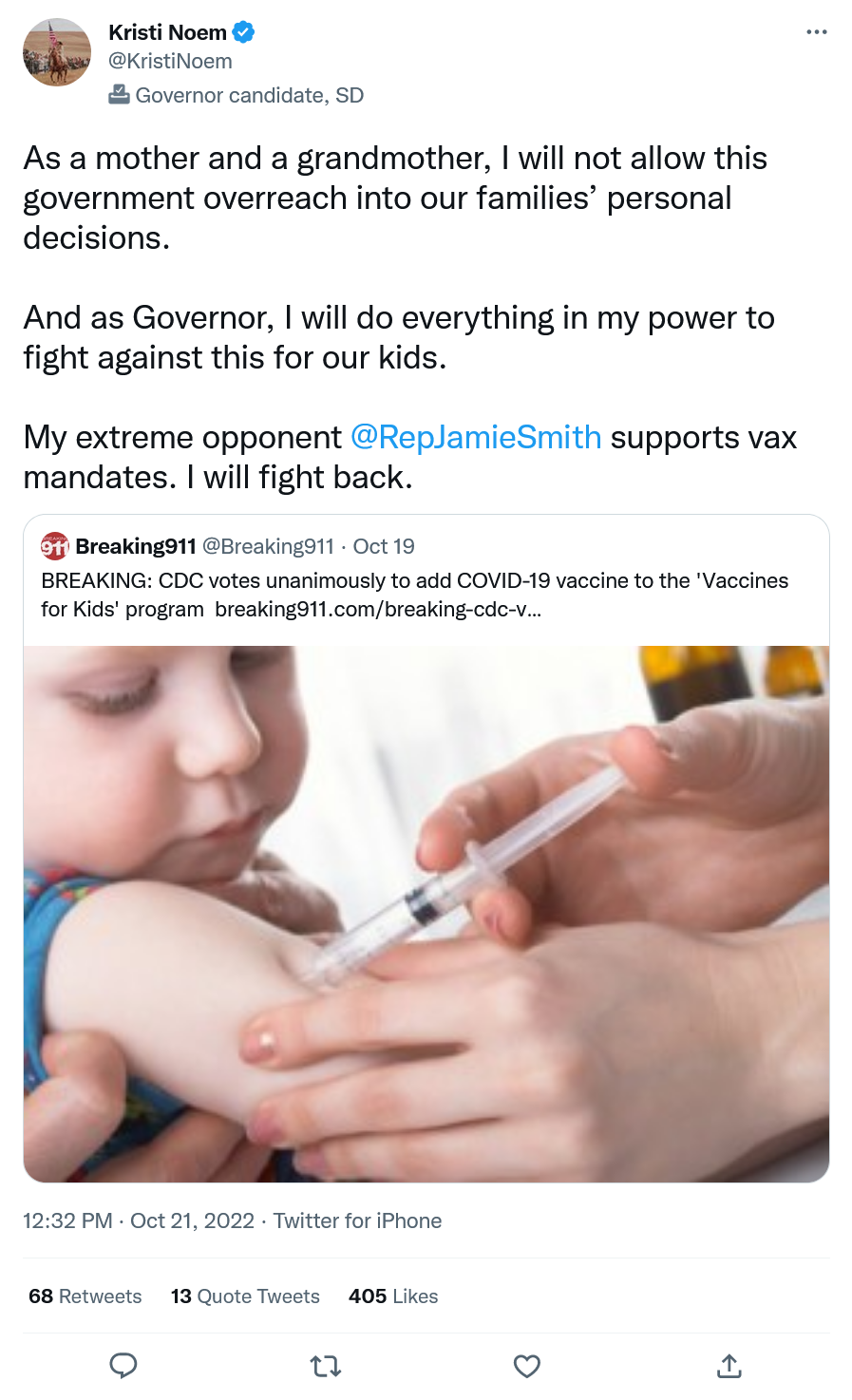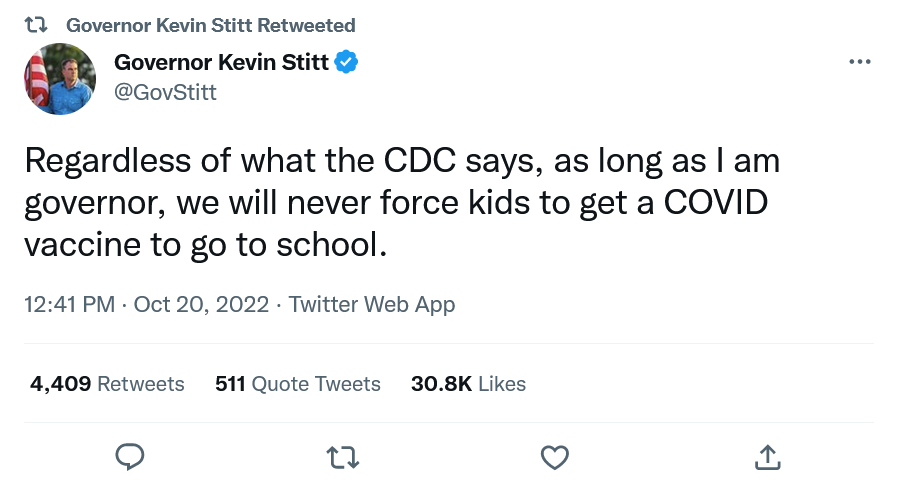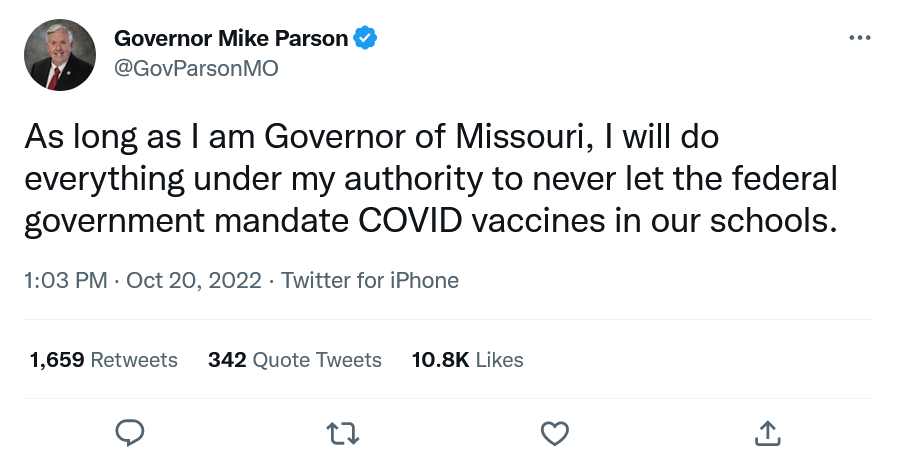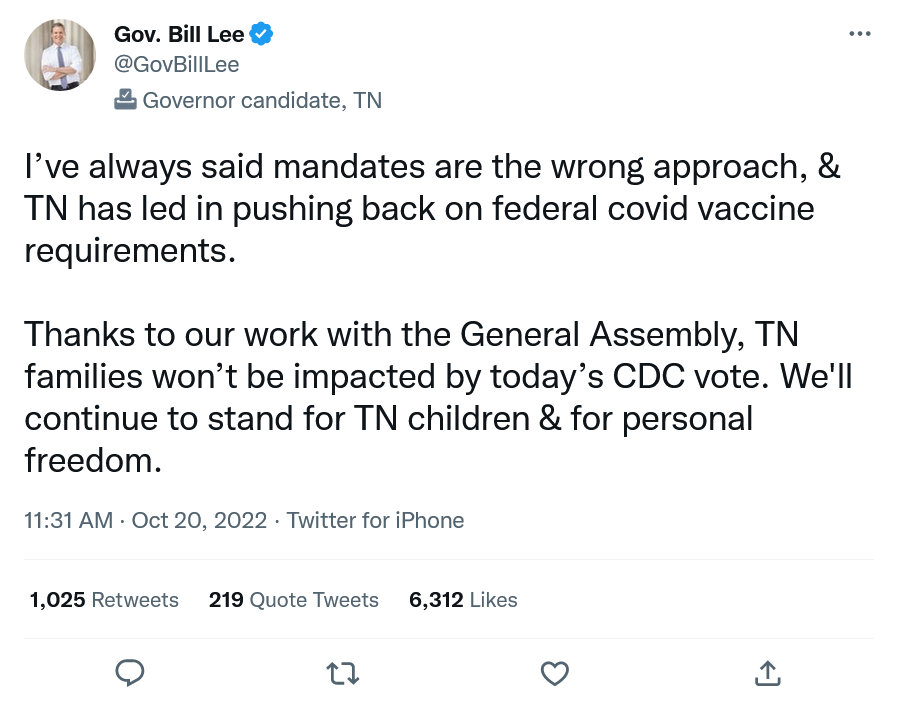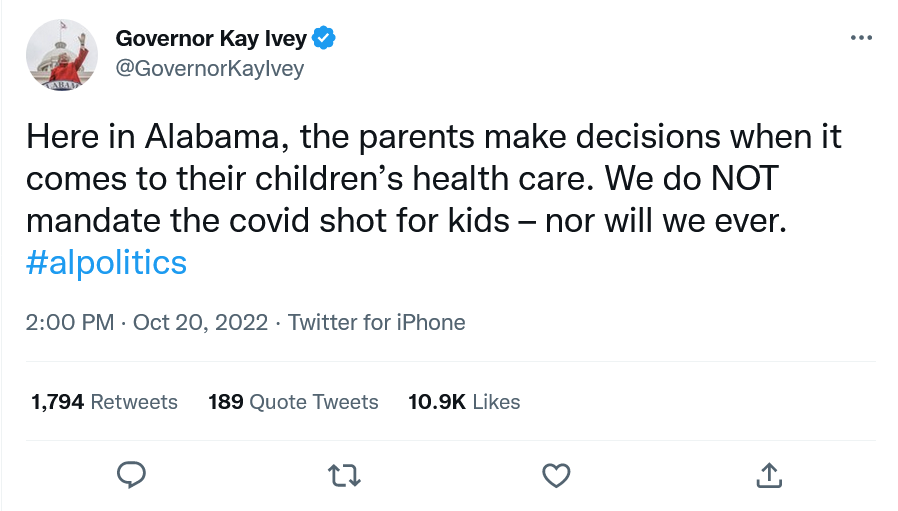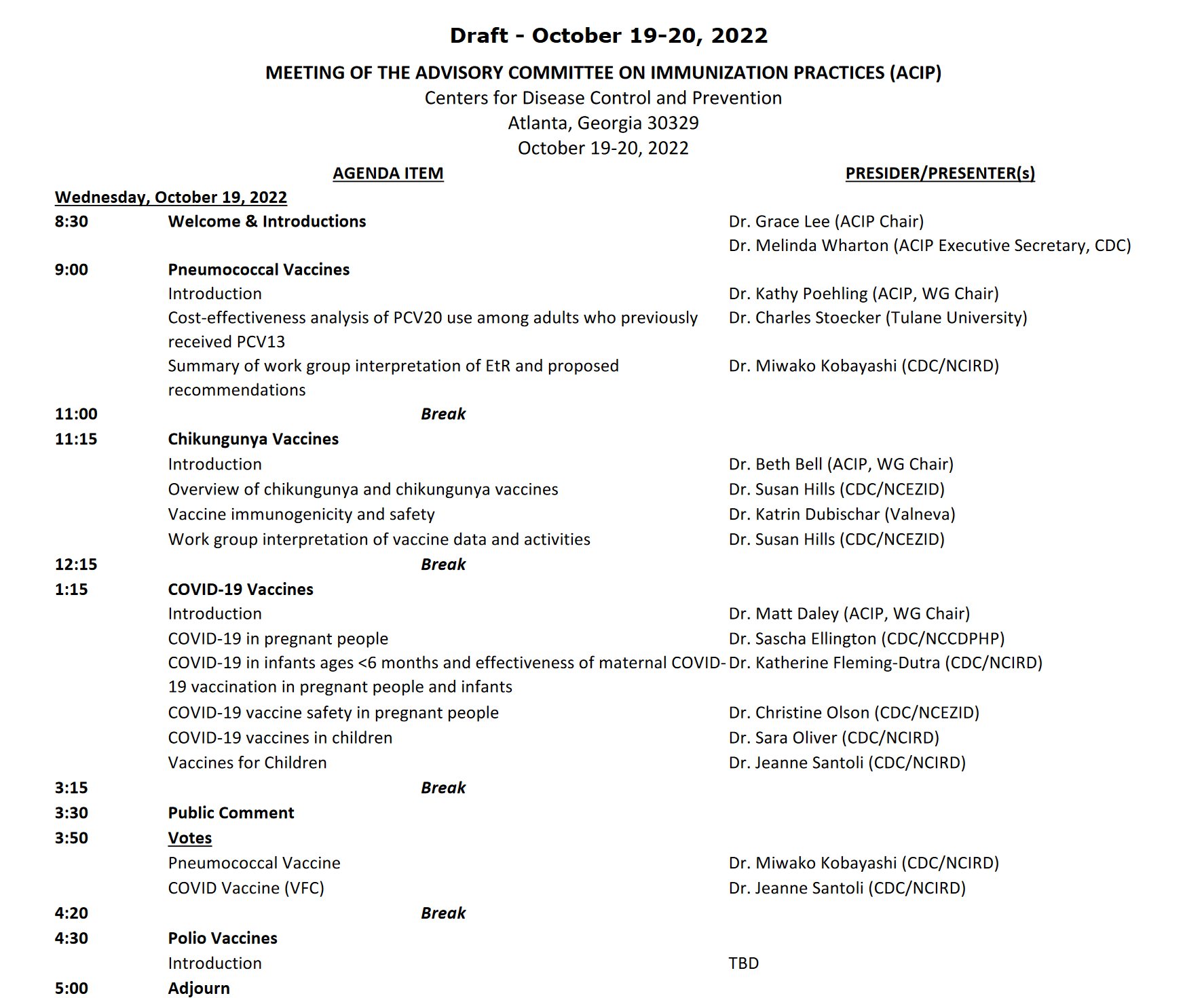Remember Election day is November 8!
The next step for everyone is to get out and vote. This election is important for parent rights, education rights, and medical sovereignty. Superintendent of Public Schools and over 25 legislative seats are open for new candidates to fill. Your vote matters. Make it count!
Make sure you are registered to vote!
2022 California General
The last day to register to vote for the November 8, 2022, General Election is October 24, 2022.
All California active registered voters will receive a vote-by-mail ballot for the November 8, General Election.
Your county elections office will begin mailing ballots no later than October 10, 2022.
Your General Election ballot will include:
7 Ballot Propositions
Statewide candidates for U.S. Senate, Governor, Lieutenant Governor, Secretary of State, Controller, Treasurer, Attorney General, Insurance Commissioner, Member of State Board of Equalization, State Superintendent of Public Instruction
U.S. Representative in Congress, State Senator, State Assembly Member
Supreme Court Justices, as well as other local candidates and local measures.
Return your vote-by-mail ballot by mail with prepaid postage as long as it's postmarked on or before Election Day and received by November 15, 2022, or in-person to a secure ballot drop box, to a voting location or your county elections office by 8:00 p.m. on November 8, 2022.
Check registration: https://voterstatus.sos.ca.gov
Register: https://registertovote.ca.gov/?t=s
Who can register to vote?
To register in California, you must:
• be a United States citizen
• be a resident of California
• be at least 18 years old or older on Election Day
• not be currently serving a state or federal prison term for the conviction of a felony
• not be currently found to be mentally incompetent to vote by a court
Early voting varies by location, and ballots start being sent to registered voters October 10.
Remember, Election Day is November 8!
It helps to know what the responsibilities are for each of the seats up for election: why are they important and how does their role impact me and my family? To learn more about the roles of the various elected offices, please read on.
Key positions that impact parent rights, education rights, and medical sovereignty:
State Superintendent of Public Instruction: California’s top education official elected as a nonpartisan office. Serves a 4-year term directing the Department of Education and executes State Board of Ed policies (The State Board of Education is appointed by the governor). An ideal candidate will add parents back into the education equation, make sure that parents always have a seat at the table, and not overlook our children as political pawns.
State Senator: Not to be confused with federal senators, each of the 40 senators represents 1 million Californians and serves a 4 year term with a 12 year limit for either house. Responsibilities include authoring and voting on bills in the state legislature for codes of law, budget, and resolutions that express the body’s approval or disapproval of something. It is their responsibility to listen to constituents, and most utilize their staff to take constituent input. Few Senators read the messages sent to them and rely primarily on their staff. Almost all accept donations from businesses and organizations, so looking them up on websites like www.votesmart.org is helpful to know where candidates get their donations and what their voting record is.
State Assembly Member: Not to be confused with federal congressmen, each represents Californians by district and serves a 2 year term with a 12 year limit for either house. There are 80 members in a state of about 40 million, authoring and voting on bills in the state legislature for codes of law, budget, and resolutions that express the body’s approval or disapproval of something. It is their responsibility to listen to constituents to sponsor and author bills and to allocate state funds for local projects. Most utilize their staff to take constituent input. Few Members read the messages sent to them and rely primarily on their staff. Almost all accept donations from businesses and organizations, so looking them up on websites like www.votesmart.org is helpful to know where candidates get their donations and what their voting record is.
Governor: Appoints over 2000 positions including department heads and officials, members of boards and commissions, as well as unexpired seats if they become vacant and judicial vacancies. The governor appoints the State Board of Education and serves as President of the Board of Regents of the University of California and the Board of Trustees of the California State University. The governor holds financial control; power to pardon, reprieve, and commute sentences; has authority over organization and administration of the executive branch; and is the state commander in chief.
Lieutenant Governor: Assumes office when governor is absent or unable to discharge duties, presides over Senate and may cast tie-breaking legislative vote, performs executive duties at governor’s request, chairs the Commission on Economic Development, and serves as ex officio on some boards and commissions.
Secretary of State: Chief elections officer and records keeper for all elections; certifies candidates; checks for number of signatures of initiatives, referendums, and recall petitions.
Other Candidate Positions on this year’s ballot:
U.S. Senate: There are 2 federal senators for each state, each serving a 6 year term without term limits, with responsibilities that include approving treaties, confirming cabinet secretaries, federal judges, and other federal officials. They can author and vote on bills, serve in special committees, and conduct impeachment trials.
U.S. Representative in Congress: Each U.S. congress member represents about 700,000 constituents for a 2 year term without term limits. There are 435 congressional members, and the number of congress members for each state depends on the population. It is their responsibility to act as the voice of the people by enacting legislation that influences daily living, funding government programs, holding hearings as part of the legislative process, and overseeing the executive branch.
State Controller: The state’s fiscal officer keeps track of state money, pays state bills, reports on financial operations and transactions at the state, county, and city levels, collects and audits taxes, manages and audits state personnel payroll, serves as member of over 80 boards and chairs CalPERs, CalSTRS, the Franchise Tax Board, and the California State Lands Commision
State Treasurer: The state’s banker and investment officer makes payments authorized by the controller, sells state bonds, secures valuables deposited into the treasury, reviews debt proposals, and serves on the board of CalPERS and CalSTRS.
Attorney General: The state’s chief lawyer ensures laws are uniformly and adequately enforced; interprets laws for the governor and government officials; manages representation in civil litigation against the state and its officers as well as superior court appeals; acts to protect Californians from fraud and other illegal activity that threatens public safety or victimizes consumers; enforces environmental laws; maintains the central fingerprint and other databases; administers training programs for law enforcement officers; supervises and may act in place of district attorneys and sheriffs; prepares titles for initiatives, referendums, and state ballot measures.
Insurance Commissioner: Protects California’s insurance consumers by enforcing state insurance codes; regulating the insurance industry and informing California consumers about insurance company rates, complaints, and enforcement.
Member of State Board of Equalization: There are 5 members on the board representing 4 districts and includes the state controller, working together to collect taxes and fees and as the appellate body for the Franchise Tax Board. They ensure equal and uniform property tax assessment and assess the properties the state’s public utilities.
Court Justices: This year’s ballot contains candidates for Superior Court, Associate and Presiding Justices for the Court of Appeals, Associate Justices of the Supreme Court, and the Chief Justice of California. Trials take place in 58 superior courts with the number of judges for each court determined by the legislature. The courts of appeal have 105 local justices in 6 districts. San Francisco has 5 divisions,20 justices; LA and Ventura have 8 divisions, 32 justices; Sacramento has 11 justices; San Diego has 3 divisions, 25 justices; Fresno has 10 justices; and San Jose has 7 justices. The state’s superior court is the highest level and has a chief of justice and 6 associate justices.
Local Candidates may include County Board of Supervisors, Local School Boards, City Council member, or other seats that are up for election during this midterm. What is on your ballot varies by district.
When choosing candidates, investigate the following questions:
Who stands for parent rights?
Who is more in alignment with what I value in education?
Who values parents as advocates for their children’s medical care?
Who demonstrates they are more likely to listen to and act on my concerns?
If an incumbent, have they made themselves available and open to their constituents? What is their voting record on issues I care about?
If new, are they stating their platform on the things I care about? Are they answering or avoiding their district’s voters?
To learn more about government roles and how the government functions, check out the Guide to California Government by the League of Women Voters of California
This post is for educational purposes only.
* PERK cannot endorse candidates; we recommend you go to organization sites that have voter guides to help you.
Some examples: Champions for Kids (School Board Candidates in California), Free Ventura, Make California Gold, Move the Needle, Freedomrevival.org, CA Families for Health Rights Several of these organizations provide educational resources for you.
Stand for Health Freedom find good candidates in your area.
Great resource for health freedom advocates across the country.
Remember, Election Day is November 8!





